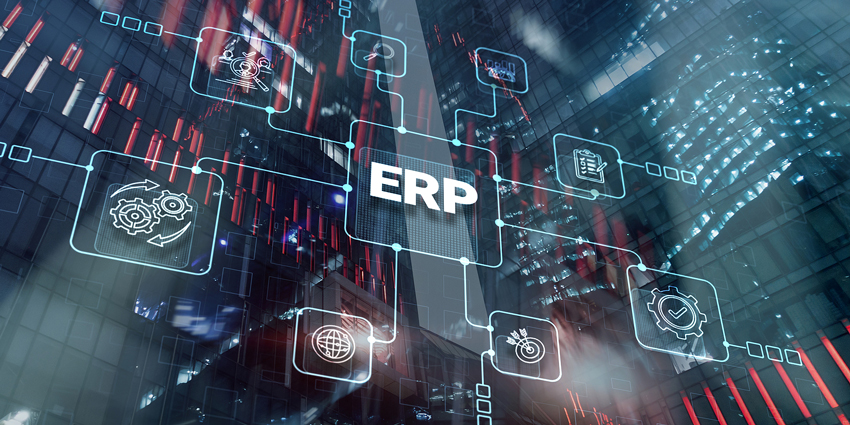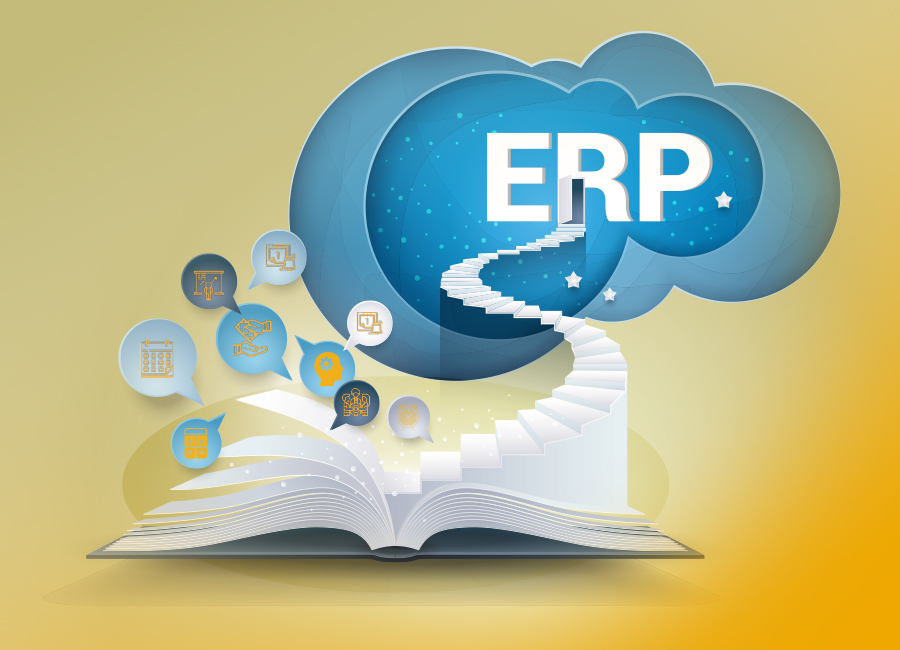Today, the world is witnessing rapid technological progress and rapid changes in the requirements of the educational process, so it has become necessary for educational institutions to search for effective solutions to manage their daily operations efficiently and transparently.Among the most prominent of these solutions is the application of the Enterprise Resource Planning (ERP) system, which provides a comprehensive and integrated solution for managing all Enterprise activities under one umbrella.In this article, we highlight the most prominent advantages of the ERP system in educational institutions And how it can bring about a paradigm shift in educational management.

What is an ERP system?
The ERP system is a set of integrated programs that help institutions manage their resources and daily operations such as finances, personnel affairs, inventory, student management, registration, class schedules, evaluations, etc.The ERP accounting system works in educational institutions as an integrated central system for managing all academic and administrative processes.And operational in the institution, such as universities, schools or institutes.
How does the ERP system work in educational institutions?
The ERP system relies on integrating various units and departments into one digital system, so that data is available in real time, which enhances efficiency and reduces repetition and errors.
Basic components of an ERP system in education:
1. Student Management
- Student registration.
- Track academic performance.
- Managing study schedules.
- Recording attendance and departure.
- Student evaluations and reports.
2. Academic Affairs Department:
- Preparing curricula and academic plans.
- Scheduling classes and lectures.
- Exam and grading management.
3. Human Resource Management (HR):
- Recruiting and appointing educational and administrative cadres.
- Salaries, attendance and departure.
- Job performance evaluation.
4. Finance Department:
- Tuition fee collection.
- Scholarship and financial aid administration.
- Budget, accounting and financial reports.
5. Library management:
- Borrow books and track materials.
- Manage memberships and indexes.
6. Facilities management and maintenance:
- Organizing classrooms and laboratories.
- Follow up maintenance work.
7. Parents and students portal:
- Direct access to student results, attendance, announcements, and class schedule.
- Parents' interaction with the school.
Advantages of implementing an ERP system in educational institutions
Implementing the ERP system in educational institutions offers a wide range of advantages that contribute to improving operational efficiency and facilitating the management of academic and administrative operations.Here are the most prominent of these advantages:
1. Integration between departments and systems
Integration is one of the most prominent advantages of the ERP system.It brings together all departments of the educational institution (such as admission and registration, student affairs, finance, human resources, and library management) within a unified central ERP program.This integration allows information to flow smoothly between departments, and reduces data duplication, which leads to improved process efficiency and faster decision-making.And more accurate.
2. Improving student affairs management
The ERP system helps in managing student affairs with high efficiency by tracking all their data from the admission stage until graduation, including attendance records, grades, behavior, activities, and even financial matters.The ERP system also allows students and parents to easily access this data from Through an electronic portal, which enhances transparency and participation.
3. Simplify financial operations
Financial systems within the ERP system enable educational institutions to track revenues and expenses, accurately manage tuition fees, grants, and budgets, facilitate auditing and accounting processes, and help prepare accurate financial reports that enable management to make strategic financial decisions based on reliable data.
4. Support decision making
Thanks to a unified database and advanced analytical reports, the ERP system allows administrators and managers to access accurate and updated information in real time.This decision-making support can be crucial in future planning, whether at the level of developing educational programs, expanding facilities, or improving efficiency.Operational.
5. Enhance security and privacy
Due to the sensitivity of educational information and students’ personal data, the ERP system provides high levels of security and data protection.The best ERP programs allow the ability to control permissions, so that each user can only access the data that he is authorized to see.These systems also support automatic backup and recovery of data, which reduces the possibility of information loss.
6. Save time and effort
By automating administrative and routine processes, the ERP system helps reduce the burden on employees, enabling them to focus on strategic tasks instead of paperwork.For example, parents can pay fees electronically without having to visit the institution, and students can register for academic subjects.Or view their study schedules easily.
7. Supporting distance education and integration with modern learning technologies
Modern ERP systems integrate with e-learning technologies (LMS) such as Moodle and Blackboard, which enhances the distance education experience and facilitates linking student data with their electronic educational activities, and this is especially necessary in light of the increasing trend towards blended learning and virtual education.
8. Seamless expansion as the organization grows
One of the most important characteristics of ERP systems is their scalability.When an educational institution grows, whether by increasing the number of students or opening new branches, the ERP system can easily adapt without the need for radical changes.This reduces long-term costs and provides a flexible technical environment that supports future growth and development.
Conclusion:
Implementing the ERP system in educational institutions represents a strategic step towards building a modern, effective, and transparent educational system. By improving integration between departments, facilitating student affairs management, and achieving the highest levels of administrative efficiency, the ERP system contributes to raising the quality of education and providing a better experience for students and workers alike.With the increasing challenges in the education sector, investing in an ERP system remains an option.Smart for ambitious educational institutions.
other topics:
reference:
1. <<5 Essential Benefits of Choosing an Efficient ERP System>>, readwrite
2. <<Reasons to Use ERP Systems in Businesses>>, enterprisetalk

Add New Comment